Internet-TV: Fernsehen in modern | Deutsche Glasfaser
Internet-TV: Fernsehen in modern | Deutsche Glasfaser
Fernsehen wie, wann und wo Sie wollen – mit waipu.tv und Deutsche Glasfaser. Dank blitzschneller Internetverbindung schauen Sie Ihre liebsten Fernsehsender auf all Ihren Geräten in bester HD-Bildqualität. Gestochen scharfes Fernsehprogramm und umfangreiche Mediatheken auf Fernseher, Tablet, Laptop oder Smartphone – ganz ohne Kabelanschluss, mit vielen praktischen Funktionen.
Jetzt Internet-TV-Pakete entdecken
Internetfernsehen — Was kann waipu.tv?
1.
Das beste aus allen
TV-Welten
Geht Ihnen Ihre geringe Programmauswahl auf den Sender? Dann können wir Ihnen genau die richtige Alternative anbieten. Mit einer enormen Vielfalt von über 200 Sendern bietet Ihnen waipu.tv jederzeit ein gigantisches Fernsehprogramm, größtenteils in HD. Zudem liefert die hauseigene Mediathek mit über 30.000 Filmen und Serien rund um die Uhr beste Unterhaltung auf sämtlichen Geräten.
200 Fernsehsender
180 Sender in HD
+ 30.000 Filme und Serien auf Abruf
2.
Internetfernsehen
für die ganze Familie
Familien, Sportbegeisterte, Kinofans und Serienjunkies: Bei uns kommt jeder auf seinen Geschmack. Live, als Aufnahme oder auf Abruf. Das ist Fernsehen via Internet: Sie bestimmen, was wann läuft.
3.
Bis zu 300 Stunden
Aufnahmespeicher inkl. Pause-/Restart-Funktion
Nie mehr etwas Wichtiges verpassen.
Mit der praktischen Aufnahmefunktion von waipu.tv schauen Sie, was Sie wollen, wann Sie wollen. Dank Pause-/Restart-Funktion pausieren Sie das Fernsehprogramm oder starten die ganze Sendung aufs Neue.
4.
Ein Stick.
Alle Möglichkeiten
Einfach brilliant: Mit dem waipu.tv 4K Stick genießen Sie Fernsehen und Streaming-Dienste in HD-Qualität. So macht der waipu.tv 4K Stick jeden Fernseher im Handumdrehen zum Smart-TV. Jeder kann überall im Haus seine liebsten Programme und Streaming-Anbieter in gestochen scharfer Auflösung genießen.:no_upscale()/cdn.vox-cdn.com/uploads/chorus_asset/file/16676745/Elisabeth_2052_and_Charlotte_2020.png)
waipu.tv 4K Stick einmalig nur
59,99 €
5.
Streaming-Dienste & Apps.
Alles an einem Ort
Mit dem waipu.tv 4K Stick verfügen Sie über eine direkte Anbindung ans Internet und den Google Play Store. Ob ARD, Amazon Prime Video, Netflix oder DAZN: Installieren Sie schnell und einfach die Apps Ihrer liebsten Sender sowie Streaming-Anbieter. Über Ihren Fernseher greifen Sie so auf die besten Programme und Mediatheken zu und genießen auf Knopfdruck ein gigantisches Angebot an Berichten, Dokumentationen und Blockbustern – eine riesige TV-Welt, zentral gesteuert.
Android Smartphone, Tablet
Apple TV, iPhone, iPad
Amazon Fire TV, Fire Tablet, Echo
Google Chromecast, AirPlay
Google Chrome, Firefox, Safari
Sie wollen alle Vorteile von waipu.tv genießen?
waipu. tv im Tarif buchen
tv im Tarif buchen
Erleben Sie die perfekte Unterhaltung auf bis zu 200 Sendern. waipu.tv vereint alle klassischen Free-TV-Sender, Pay-TV-Programme und das Beste aus dem Internet mit New TV & Video-on-Demand der größten Streaming-Anbieter. Jetzt entdecken und bequem zu Ihrem Glasfaser-Tarif (von Deutsche Glasfaser) dazubuchen.
Sie haben Interesse an DGTV?
Bitte kontaktieren Sie uns unter 02861 8133 462.
Hilfe und Service
Live Chat
Der Live Chat wird jetzt für Sie geladen und vorbereitet. Sofern ein Mitarbeiter verfügbar ist, wird ein Button «Live Chat starten» erscheinen.
Live Chat wird geladen …
Der Live Chat ist leider nicht besetzt.
Beratung Zuhause
Wir kommen zu Ihnen
In unseren Netzausbaugebieten bieten wir die Möglichkeit
einer kostenlosen Beratung Zuhause.
Ort auswählen
Deutsche Glasfaser kooperiert mit Streaming-Anbieter: So profitieren Kunden
Die Deutsche Glasfaser hat sich einen prominenten Partner ins Boot geholt.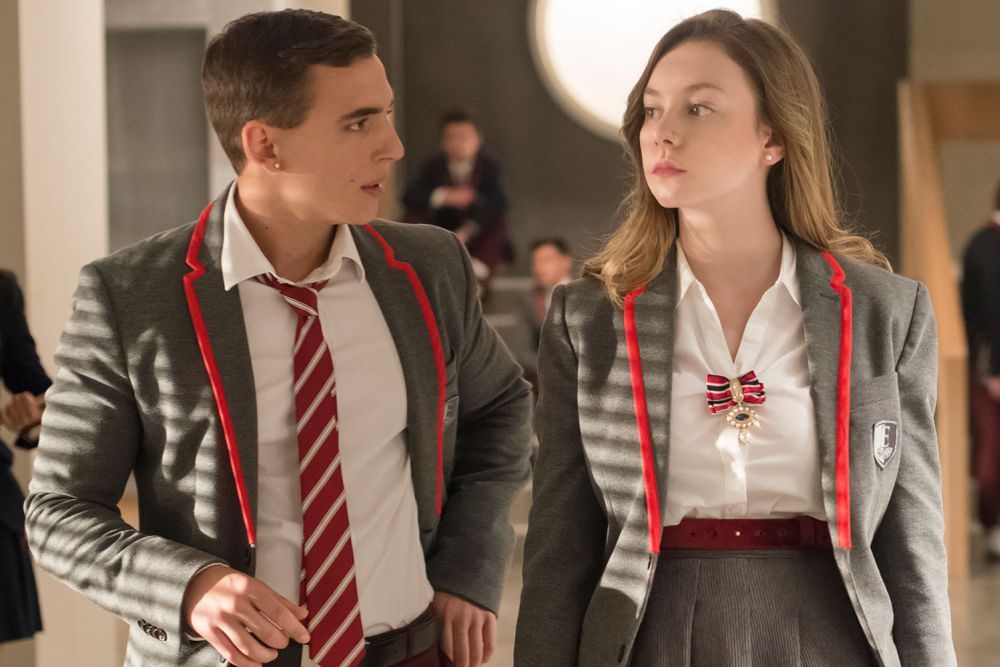 In Zukunft werden Kunden auch das Angebot des Internet-TV-Anbieters waipu.tv nutzen können. Hier erfahren Sie, ab wann die Neuerung gilt.
In Zukunft werden Kunden auch das Angebot des Internet-TV-Anbieters waipu.tv nutzen können. Hier erfahren Sie, ab wann die Neuerung gilt.
Die mit einem Symbol oder grüner Unterstreichung gekennzeichneten Links sind Affiliate-Links. Kommt darüber ein Einkauf zustande,
erhalten wir eine Provision — ohne Mehrkosten für Sie! Mehr Infos.
Die Deutsche Glasfaser hat eine Partnerschaft mit Internet-TV-Anbieter waipu.tv geschlossen. Damit bekommen Kunden neben dem linearen Fernsehen auch Zugriff auf viele Pay-TV-Inhalte, wie der Verband der Anbieter von Telekommunikations- und Mehrwertdiensten (VATM) berichtet.
Kunden der Deutschen Glasfaser erhalten das Angebot Anfang nächsten Jahres. Neukunden können sich bereits Ende 2022 darüber freuen. Das bisherige TV-Angebot der Tochtergesellschaft BrightBlue wird hingegen eingestellt.
Deutsche Glasfaser kooperiert mit Streaming-Anbieter: Konzentration auf das Kerngeschäft
Die Deutsche Glasfaser will sich in Zukunft konsequent auf ihr Kerngeschäft fokussieren. Das beinhaltet den Glasfaserausbau insbesondere in ländlichen Gegenden.
Das beinhaltet den Glasfaserausbau insbesondere in ländlichen Gegenden.
Bei waipu.tv hofft man, dass man die eigene Reichweite durch die Kooperation weiter vergrößern kann. «Dank unserer Zusammenarbeit werden künftig noch mehr Haushalte auf dem Land vom IPTV-Angebot von waipu.tv über Glasfaser in allerbester Qualität profitieren», sagt Christoph Bellmer, CEO der Exaring AG, dem Betreiber von waipu.tv.
Shop-Empfehlung für Fernseher
Samsung GQ65S95BAT OLED TV
1.500,00 €
LG OLED55C17LB
1.259,00 €
Samsung GQ55Q60AAU
550,00 €
Panasonic TX-55LZW2004
2.111,00 €
Sony BRAVIA XR-65A95K OLED TV
2.799,00 €
LG OLED65C27LA OLED TV
1.999,00 €
LG OLED65C17LB
1.399,00 €
Panasonic TX-55JZW984
999,00 €
Samsung GQ55QN90A
1.299,00 €
Weitere Fernseher vergleichen
Quelle: BestCheck.de | Preise inkl. MwSt. zzgl. Versand
Andere Leser interessiert auch:
Mehr Beiträge aus diesem Bereich
-
«Avatar 3»: Darum könnte es in der Sci-Fi-Fortsetzung gehen
-
Henry Cavill ist nicht mehr Superman und The Witcher — was macht er dann?
-
Große Fernseher bald verboten? Neue EU-Verordnung setzt Hersteller unter Druck
-
Avatar 2: Hilft der Sci-Fi-Blockbuster den Kinos aus der Krise?
-
Nicht im Free-TV: So Sehen Sie Marokko gegen Kroatien live im Stream
Zur Übersicht «TV & Streaming»
Die beliebtesten CHIP-News
-
Umsätze stark eingebrochen: Deutscher Traditions-Autohersteller muss Insolvenz anmelden
-
iPhone-Nutzer haben plötzlich eine neue App: Was sich mit iOS 16.
 2 alles ändert
2 alles ändert
-
Neue Betrugsmasche bei WhatsApp: Bei diesen Nachrichten müssen Sie besonders vorsichtig sein
-
AVM veröffentlicht FritzOS 7.50: Mega-Update bringt über 150 Neuerungen
-
Großer Reifen-Rückruf gestartet: Wer keinen Unfall riskieren will, sollte reagieren
German Netflix series: TOP 5
German Netflix series for language learning — 7 series with which learning German will be easy!
EF Education First chose 7 TV shows to make learning German easy! All episodes were filmed in Germany. You can easily plunge into the German atmosphere right at home.
Tip: turn on subtitles so you remember more words! Listen carefully to remember the pronunciation and feel the natural flow of the language. nine0003
1. Darkness
If you love Stranger Things or Twin Peaks, Darkness is the place to watch! The series takes place in the fictional town of Wenden. The plot revolves around the mystery of a missing child and the interconnected lives of four families.
The dark atmosphere of this horror-infused series, combined with its iconography and visual cues, will keep you watching the entire season. And then the second one.
This show is great for German learners. More of it is also a must-see for lovers of history and movement in time and space. The stage sets are excellent and give you a true glimpse of what German life was like during the Weimar Republic. This is the period between the two world wars. nine0003
2. Charité
This historical series takes place in 1888 in Europe’s largest Berlin clinic, the Charité. There, famous researchers Rudolf Virchow, Ernst von Bergmann and three future Nobel laureates Robert Koch, Emil von Behring and the inventor of chemotherapy Paul Ehrlich fought for success in their fields.
The story revolves around two police officers tasked with solving the murder of a famous German-Turkish football star. And while one of them is trying to find justice by circumventing the law, the other uses a sinister crime to his advantage.
In this film you will find a mixture of gangs, drugs, blackmail, corruption, betrayal and social control. nine0003
4. Bad Banks
Captivating script, great actors and great cinematography — this is the result of this German hit.
Bad Banks takes place in the world of investment banking, moving between Frankfurt, Luxembourg and London. The series is about a young banker and her meteoric rise, which is actually an eight-week hellish journey into the dark heart of the bank she works for.
Power, freedom, status and excitement — while watching «Bad Banks» you will experience a roller coaster of emotions that will keep you glued to the screen for several hours. nine0003
5. Babylon-Berlin
This show is by far the most expensive German show ever made.
The series is set in the glorious, roaring 1920s. In the center of events is the handsome police commissioner Gereon Rath. He is transferred from Cologne to Berlin to uncover the underground influence of local gangs. His investigations in the imperial capital lead him into a dark world of drugs, corruption and extremism.
This show is great for those who are learning German and love historical films. The stage sets are excellent and give you a true glimpse of what German life was like during the Weimar Republic. nine0003
Read also related:
- Netflix’s actions lead to a drop in stock market returns
- The Squid Game universe will appear on Netflix
- Netflix announcement: 2022 news
Subscribe to our 9002 Telegram message with the main news of the day, every evening on weekdays.
Literary hour «Doctor Bulgakov’s office»
Dear readers! On May 15, 2021, we celebrate the 130th anniversary of the birth of Mikhail Afanasyevich Bulgakov. nine0003
About his work Mikhail Bulgakov said: “Black and mystical colors, which depict countless ugliness of our life, the poison that impregnates my tongue <…>, and most importantly, the image of the terrible features of my people.![]() ” During the life of the writer, his plays were forbidden to be staged, and stories and novels were published only in the 1960s. Now the works «Heart of a Dog», «White Guard», «Master and Margarita» are read from school.
” During the life of the writer, his plays were forbidden to be staged, and stories and novels were published only in the 1960s. Now the works «Heart of a Dog», «White Guard», «Master and Margarita» are read from school.
Mikhail Bulgakov was born on May 15, 1891 in Kyiv. His father, Athanasius Bulgakov, was a professor at the Kyiv Theological Academy. He was fluent in Greek, German, French, English, read Old Church Slavonic. Mother, Varvara Bulgakova, worked as a teacher in a gymnasium, but after the wedding she devoted herself to children. The future writer was the eldest child: later, children Vera, Nadezhda, Barbara, Nikolai, Ivan and Elena were born in the Bulgakov family. The salary at the academy was not enough, and in order to feed his family, his father, in addition to his main job, taught history at the Institute for Noble Maidens and served in the office of the Kyiv censor. Konstantin Paustovsky wrote in The Book of Wanderings: “The Bulgakov family was well known in Kyiv — a huge, branched, thoroughly intelligent family <.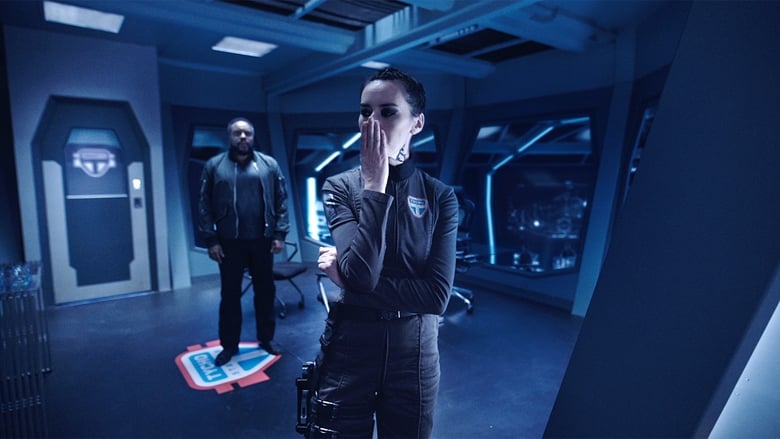 ..> Outside the windows of their apartment, the sounds of the piano, the voices of young people, running around, laughter, disputes and singing were constantly heard. nine0003
..> Outside the windows of their apartment, the sounds of the piano, the voices of young people, running around, laughter, disputes and singing were constantly heard. nine0003
The Bulgakovs lived in a picturesque place — on Andreevsky Spusk. In the essay “Kyiv-Gorod”, the writer later recalled: “In spring, the gardens bloomed in white, the Tsar’s Garden dressed in greenery, the sun broke through all the windows, lit fires in them. And the Dnieper! And the sunsets! In order for the children to spend more time in nature, the parents bought a dacha. Since 1900, the family moved every summer to the village of Bucha near Kyiv — there they had a one-story five-room house with two verandas.
The Bulgakovs often played music. In the evenings, my mother played the piano pieces by Fryderyk Chopin. Sometimes the father took the violin in his hands, and the parents sang romances together. Children were often taken to summer concerts in the Merchant’s Garden over the Dnieper, they tried to get tickets to the opera. The family went to the popular at that time «Faust» with Fyodor Chaliapin in the title role several times. The Bulgakovs also staged charity performances in which household members played. Performances were held either in shelters for the disabled, or in the apartments of friends. nine0003
The family went to the popular at that time «Faust» with Fyodor Chaliapin in the title role several times. The Bulgakovs also staged charity performances in which household members played. Performances were held either in shelters for the disabled, or in the apartments of friends. nine0003
The children were educated by their mother, the “bright queen,” as Mikhail Bulgakov called her. She instilled in them a love of reading: there was a large library in the house. The writer’s sister Elena Bulgakova said: “Parents, by the way, somehow skillfully raised us, they did not bother us:“ Oh, what are you reading? Ah, what did you take?“. We had different books.» Mikhail Bulgakov read the works of Alexander Pushkin and Leo Tolstoy, adventure novels by Fenimore Cooper and fairy tales by Mikhail Saltykov-Shchedrin. His favorite writer was Nikolai Gogol. Bulgakov began to write early and himself. He composed short stories about city dwellers. nine0003
In 1901, Mikhail Bulgakov was enrolled in the most prestigious school in the city — the First Kyiv Men’s Gymnasium. Studying was easy for him: the future writer finished the first, second, third and sixth grades with awards. The upbringing in the gymnasium was progressive: the students were addressed as «you» and allowed to express their own opinion. Together with the future writer, Konstantin Paustovsky studied. He recalled: “No one gave such caustic and“ sealing ”nicknames as Bulgakov <...> “You have a poisonous eye and a harmful tongue,” Inspector Bodyansky told him with contrition. — Directly eager for a scandal, although they grew up in a respectable professorial family! Mikhail Bulgakov sang in the gymnasium church choir, played football and skated. nine0003
Studying was easy for him: the future writer finished the first, second, third and sixth grades with awards. The upbringing in the gymnasium was progressive: the students were addressed as «you» and allowed to express their own opinion. Together with the future writer, Konstantin Paustovsky studied. He recalled: “No one gave such caustic and“ sealing ”nicknames as Bulgakov <...> “You have a poisonous eye and a harmful tongue,” Inspector Bodyansky told him with contrition. — Directly eager for a scandal, although they grew up in a respectable professorial family! Mikhail Bulgakov sang in the gymnasium church choir, played football and skated. nine0003
“Bulgakov was full of jokes, inventions, hoaxes. All this went freely, easily, arose for any reason. This was an amazing generosity, the power of imagination, the talent of an improviser <...> There was a world, and in this world existed as one of its links — his creative youthful imagination »
Konstantin Paustovsky, writer
Father of Mikhail Bulgakov The mother was left alone with six children. The Kyiv Theological Academy paid the family a monthly pension, but it was not enough. Then Varvara Bulgakova began to teach at evening courses for women. As the eldest son, Mikhail Bulgakov began to look for work to help his mother: he was engaged in tutoring, and in the summer he served as a conductor on the railway. Despite financial difficulties, all the children continued to study at the prestigious gymnasiums in Kyiv. Mother said: “I cannot give you a dowry or capital. But I can give you the only capital you will have is education.” nine0003
The Kyiv Theological Academy paid the family a monthly pension, but it was not enough. Then Varvara Bulgakova began to teach at evening courses for women. As the eldest son, Mikhail Bulgakov began to look for work to help his mother: he was engaged in tutoring, and in the summer he served as a conductor on the railway. Despite financial difficulties, all the children continued to study at the prestigious gymnasiums in Kyiv. Mother said: “I cannot give you a dowry or capital. But I can give you the only capital you will have is education.” nine0003
In 1909, Mikhail Bulgakov graduated from the gymnasium and received a certificate. In July of the same year, he entered the medical faculty of Kyiv University. The graduate quickly decided on a profession: his two uncles on his mother’s side worked as doctors in Moscow and Warsaw, and both earned decent money. This factor has become decisive.
In 1911, Bulgakov met Tatyana Lappa, who came from Saratov to visit relatives for the holidays.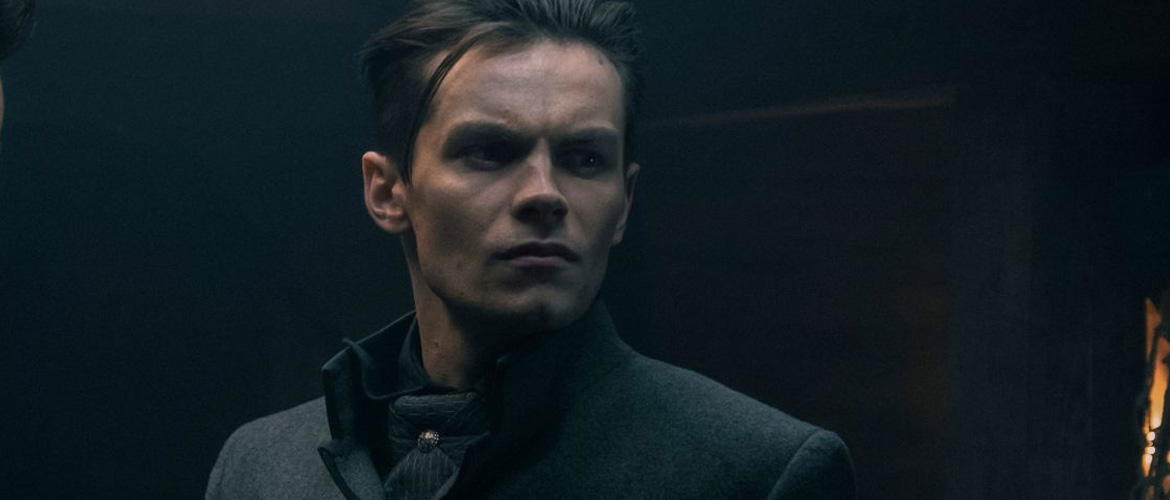 Her aunt was friends with Bulgakov’s mother, and the future writer was asked to show the girl the city. Tatyana Lappa recalled: “For days on end, without noticing fatigue, we wandered through Kyiv streets and parks, visited museums. Wherever he took me. We often visited Vladimirskaya Gorka <…> And in the evenings we went to the Opera House.” They fell in love with each other, but soon Tatyana Lappa had to return home. Bulgakov’s sister wrote in her diary: «He always strives to Saratov, where she lives, abandoned classes at the university, did not go to the 3rd year.» nine0003
Her aunt was friends with Bulgakov’s mother, and the future writer was asked to show the girl the city. Tatyana Lappa recalled: “For days on end, without noticing fatigue, we wandered through Kyiv streets and parks, visited museums. Wherever he took me. We often visited Vladimirskaya Gorka <…> And in the evenings we went to the Opera House.” They fell in love with each other, but soon Tatyana Lappa had to return home. Bulgakov’s sister wrote in her diary: «He always strives to Saratov, where she lives, abandoned classes at the university, did not go to the 3rd year.» nine0003
The next time the lovers saw each other only in 1912, when Tatyana Lappa was admitted to the historical and philological department of the Kyiv Higher Courses for Women. In 1913 they got married. There was no money: the couple did not know how to save money and spent what Father Lappa translated on the same day.
When the First World War began, Mikhail Bulgakov was in his fourth year. There were many wounded, and medical students were sent on duty to the Red Cross infirmary. Tatyana Lappa also got a job at the hospital as a nurse. At 19In 15, during a recruiting campaign at the university, Bulgakov signed up as a volunteer for the front, but due to chronic kidney disease, he was recognized as «unfit for military field service.»
Tatyana Lappa also got a job at the hospital as a nurse. At 19In 15, during a recruiting campaign at the university, Bulgakov signed up as a volunteer for the front, but due to chronic kidney disease, he was recognized as «unfit for military field service.»
Zemsky doctor
In 1916, Bulgakov passed his final exams and received a «doctor’s degree with honors.» The future writer did not even wait for the solemn presentation of diplomas: he left for the Southwestern Front as a volunteer of the Red Cross. In the summer of 1916, there were often battles there — General Brusilov launched the famous Operation Brusilovsky Breakthrough. Mikhail Bulgakov worked in a front-line hospital, first in Kamenetz-Podolsky, then in the liberated city of Chernivtsi. However, in September he was recalled. All experienced doctors went to the front, and there was a catastrophic shortage of people in rural hospitals. Then, recent graduates of medical faculties began to be called from service and distributed to remote villages.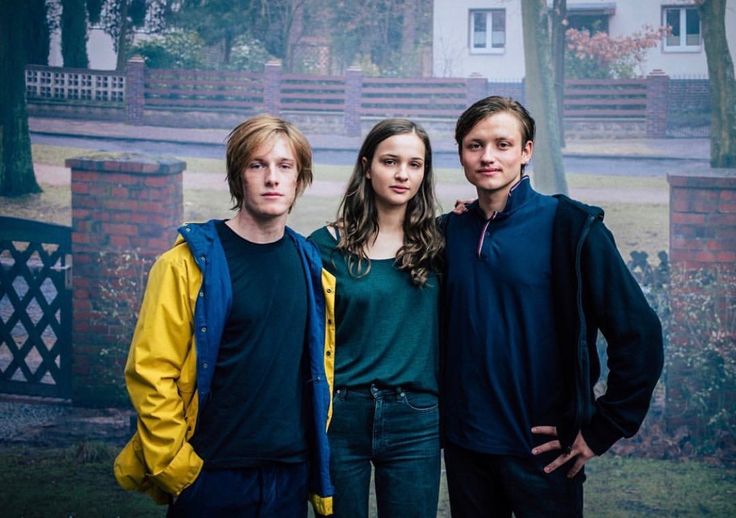 Mikhail Bulgakov was appointed to the Smolensk province — he became the head and sole doctor of the Nikolskaya zemstvo hospital in the Sychevsky district. nine0003
Mikhail Bulgakov was appointed to the Smolensk province — he became the head and sole doctor of the Nikolskaya zemstvo hospital in the Sychevsky district. nine0003
The work was hard, Bulgakov did everything: he gave birth, amputated his arms and legs, treated boils. In the reports of the council they wrote: «He has proven himself to be an energetic and tireless worker in the zemstvo field.» During the year, the young doctor received 15361 patients. During this period, Bulgakov began to write stories about what happened to him while working: «Star Rash», «Towel with a Rooster», «Steel Throat». Later they were included in the cycle «Notes of a Young Doctor». In 1917, he contracted diphtheria while treating a sick child. To relieve pain, Bulgakov injected himself with morphine. The substance immediately became addictive. nine0003
In September 1917, at his request, Mikhail Bulgakov was transferred to the Vyazemsky hospital. He became the head of the infectious and venereal department.
“And now I saw them again at last, seductive light bulbs! A live policeman was standing at the crossroads <...> in a booth they were selling yesterday’s Moscow newspapers containing amazing news, Moscow trains were whistling invitingly not far away. In a word, it was civilization, Babylon, Nevsky Prospekt”
Mikhail Bulgakov, story «Morphine»
In December 1917, Bulgakov went to Moscow for permission to return to Kyiv, but was refused. There were riots in the city — there was a revolution. Bulgakov wrote: “Recently, on a trip to Moscow, I had to see with my own eyes what I would no longer want to see. I saw crowds smash windows on trains, I saw people being beaten. I saw destroyed and burnt houses in Moscow. I saw hungry tails at the shops, hunted and pitiful officers. nine0003
Bulgakov was released from service only in February 1918. The doctor and his wife immediately returned to Kyiv. Their train was one of the last — soon the German troops captured the city and the occupation began.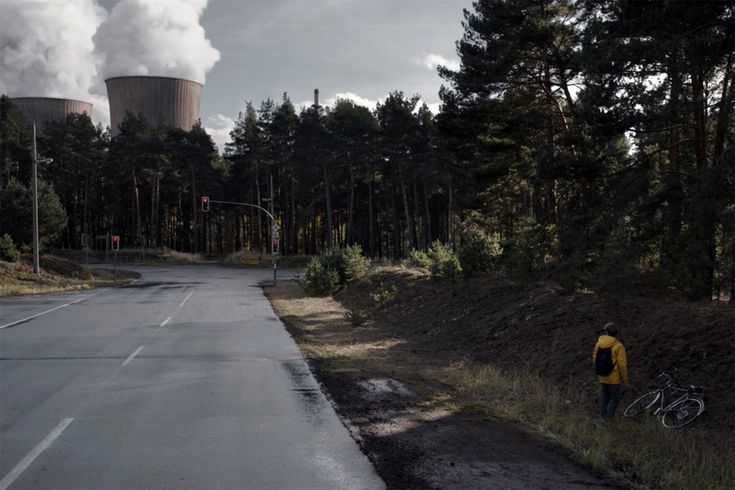 Mikhail Bulgakov decided to specialize in venereology and opened a private appointment. Overcame addiction to morphine. Now he wrote in the evenings. Bulgakov conceived the cycle «Notes of a Young Doctor», excerpts of which he read at home.
Mikhail Bulgakov decided to specialize in venereology and opened a private appointment. Overcame addiction to morphine. Now he wrote in the evenings. Bulgakov conceived the cycle «Notes of a Young Doctor», excerpts of which he read at home.
Power in Ukraine was constantly changing. After the German occupation, the country was ruled by Hetman Skoropadsky, then there were Symon Petliura and the Ukrainian People’s Republic, who were replaced by the Red Army. Bulgakov wrote: “At 19In the year 19, while living in the city of Kyiv, he was consistently called to the service as a doctor by all the authorities that occupied the city. He had to hide or run away. Tatyana Lappa recalled how her husband avoided being drafted into Petliura’s army: “He later said that he somehow lagged behind a little, then a little more, behind a pole, after another, and rushed into the alley to run. So I ran, so my heart was pounding, I thought there would be a heart attack. However, in September 1919, Bulgakov failed to escape — he was sent as a military doctor to Vladikavkaz. His wife decided to go with him. nine0003
His wife decided to go with him. nine0003
In February 1920, the White Guards left Vladikavkaz — the Reds were advancing on the city. Bulgakov could not leave with the army: shortly before that, he fell ill with typhus. And when he recovered, a revolutionary committee was already sitting in the city. It was necessary to decide how to earn a living. A doctor’s diploma threatened with another mobilization and sending to the places of hostilities, so Mikhail Bulgakov decided to change his specialty and become a writer.
He got a job at the Vladikavkaz Revolutionary Committee, where he was in charge of the literary and theatrical section. Bulgakov took his duties responsibly: almost every day he organized literary evenings, public readings, lectures on the history of culture. At the same time, he staged plays on the theater stage that he wrote himself. At 19In 2020, two premieres took place: the comedy about gangs during the Civil War «Self-Defense» and the drama about the collapse of old ideals «The Turbine Brothers». Mikhail Bulgakov wrote to his cousin Konstantin: “Turbins” went on four times in a month with a bang of success <…> How I wish you were here when “Turbins” went on for the first time. You cannot imagine what sadness was in my soul that the play was going on in a provincial hole, that I was four years late with what I should have started doing long ago — writing. nine0003
Mikhail Bulgakov wrote to his cousin Konstantin: “Turbins” went on four times in a month with a bang of success <…> How I wish you were here when “Turbins” went on for the first time. You cannot imagine what sadness was in my soul that the play was going on in a provincial hole, that I was four years late with what I should have started doing long ago — writing. nine0003
First literary works
In 1921 Mikhail Bulgakov moved to Moscow. At first he worked as a chronicler in the Commercial and Industrial Bulletin, after its closure he moved to the Rabochy newspaper, and then got a job as a letter processor in the Gudok publication. Money was sorely lacking, and Bulgakov took on any job. In his diary dated January 26, 1922, he wrote: “I entered a wandering group of actors: I will play on the outskirts. Fee 125 per performance. Killer little. Of course, because of these performances, there will be no time to write. A vicious circle <...> We eat from hand to mouth with my wife. Feuilletons and essays for Gudok were then written by well-known writers: Ilya Ilf and Evgeny Petrov, Valentin Kataev, Yuri Olesha, Isaac Babel. From April 19At the age of 22, Mikhail Bulgakov also joined them. The writer’s texts were published in almost every issue of the newspaper — during this period, humorous stories «The Adventures of Chichikov», «Red Crown», «Cup of Life» were published. Bulgakov ridiculed the philistines, opportunists and liars. Often he drew ideas from notes sent to the editor by work correspondents.
From April 19At the age of 22, Mikhail Bulgakov also joined them. The writer’s texts were published in almost every issue of the newspaper — during this period, humorous stories «The Adventures of Chichikov», «Red Crown», «Cup of Life» were published. Bulgakov ridiculed the philistines, opportunists and liars. Often he drew ideas from notes sent to the editor by work correspondents.
At the same time, the former doctor wrote for the emigrant pro-Soviet publication Nakanune. In the literary supplement, the newspapers published the first chapters of the story «Notes on the Cuffs» — a partly autobiographical work about the hungry life of a modern writer. Six months later, the second part of the text was published, this time in the Rossiya magazine. nine0003
Mikhail Bulgakov devoted more and more time to literature. In 1923 he began work on the novel The White Guard. During the day he wrote feuilletons for the «Beep», in the evenings he worked on the work. Tatyana Lappa recalled: “He wrote The White Guard at night and liked me to sit around and sew. His hands and feet were getting cold, he would say to me: “Hurry, hurry hot water”; I heated water on a kerosene stove, he put his hands into a basin of hot water. The novel described the events of the Civil War in Ukraine through the life of a large intelligent family. All the heroes had prototypes — relatives or Kyiv friends of Mikhail Bulgakov. The writer even gave the family the maiden name of his grandmother — Turbine. In the essay “I had a dream,” he wrote: “I remember that I really wanted to convey how good it is when it’s warm at home, the clock chiming in the dining room, sleepy slumber in bed, books and frost.” Bulgakov compared the novel with «War and Peace»: the characters involuntarily found themselves in the center of political events and had to make a choice. nine0003
His hands and feet were getting cold, he would say to me: “Hurry, hurry hot water”; I heated water on a kerosene stove, he put his hands into a basin of hot water. The novel described the events of the Civil War in Ukraine through the life of a large intelligent family. All the heroes had prototypes — relatives or Kyiv friends of Mikhail Bulgakov. The writer even gave the family the maiden name of his grandmother — Turbine. In the essay “I had a dream,” he wrote: “I remember that I really wanted to convey how good it is when it’s warm at home, the clock chiming in the dining room, sleepy slumber in bed, books and frost.” Bulgakov compared the novel with «War and Peace»: the characters involuntarily found themselves in the center of political events and had to make a choice. nine0003
In the summer of 1923, Bulgakov wrote The Diaboliad, a story about the clerk Korotkov, who was driven mad by the Soviet bureaucracy. The work was published in 1924 in the Nedra magazine. After the text was published, the writer Yevgeny Zamyatin noted: “The author undoubtedly has the right instinct in choosing a compositional setting: fantasy, rooted in everyday life, fast, like in a movie, changing scenes <.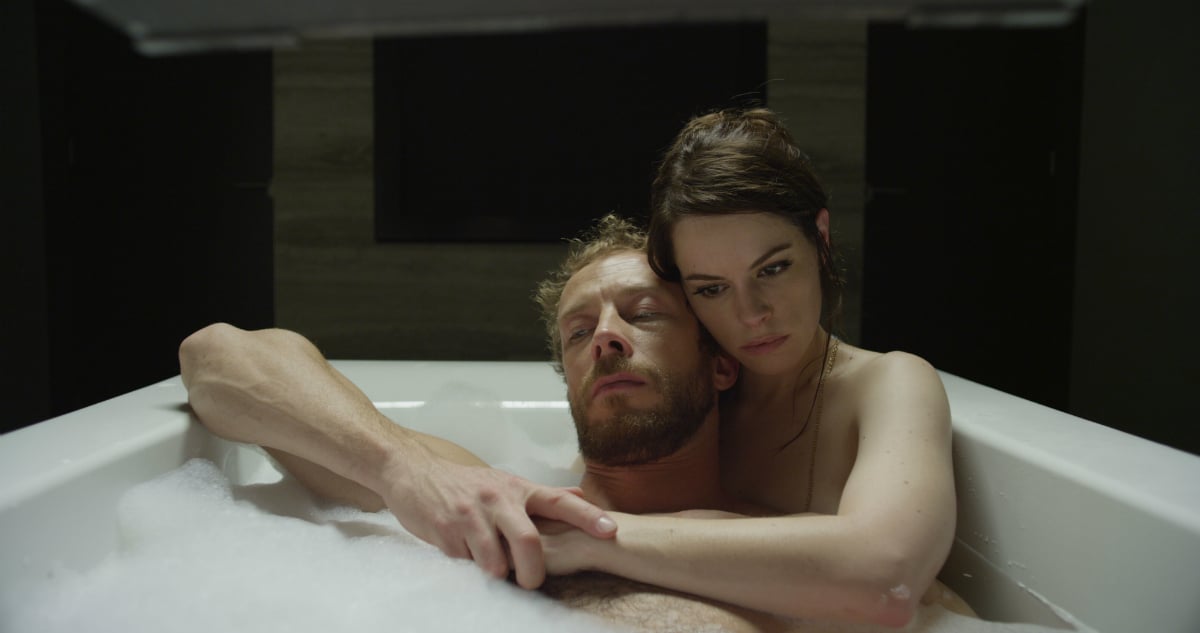 ..> The absolute value of Bulgakov’s piece is very different. sometimes thoughtless — not great, but from the author, apparently, you can expect good work. Mikhail Bulgakov wrote quickly. Already in autumn 19At the age of 23, he completed the story «Khan’s Fire». Soon Bulgakov joined the All-Russian Union of Writers.
..> The absolute value of Bulgakov’s piece is very different. sometimes thoughtless — not great, but from the author, apparently, you can expect good work. Mikhail Bulgakov wrote quickly. Already in autumn 19At the age of 23, he completed the story «Khan’s Fire». Soon Bulgakov joined the All-Russian Union of Writers.
Moscow Art Theater and the Vakhtangov Theatre: Bulgakov — playwright
In the winter of 1924, at the evening of the newspaper Nakanune, Mikhail Bulgakov met Lyubov Belozerskaya. During the revolution, she emigrated to France with her husband, then divorced and returned to Soviet Russia. Soon Bulgakov broke up with Tatyana Lappa and married Belozerskaya.
“It was impossible not to notice his unusually fresh language, masterful dialogue and such unobtrusive humor. I liked everything that belonged to his pen <…> He was dressed in a deaf black sweatshirt without a belt, “undershirt”. I’m not used to such a masculine silhouette; it seemed slightly comical to me, as well as patent leather boots with a bright yellow top, which I immediately dubbed «chicken»
Lyubov Belozerskaya, memoirs «Oh, honey of memories»
In 1924, Mikhail Bulgakov wrote the fantastic novel «Fatal Eggs».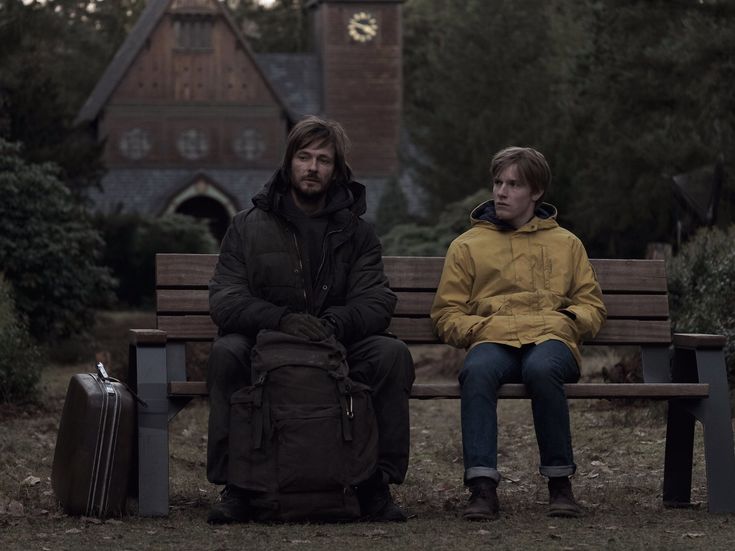 The writer moved the action of the work into the future, in 1928. The story brought fame to Bulgakov: it was published in two magazines at once — Nedra and Krasnaya Panorama, and in 1925 it was included in the first collection of the writer, Diaboliad. Gorky wrote in a letter to Mikhail Slonimsky on May 8, 1925: “I liked Bulgakov very much, very much <…>.” In the same year, two parts of the novel The White Guard were published in the Rossiya magazine. Bulgakov dedicated the work to his new wife. However, the entire «White Guard» was not published: the magazine went bankrupt, and the printing of the last part of the work was canceled. nine0003
The writer moved the action of the work into the future, in 1928. The story brought fame to Bulgakov: it was published in two magazines at once — Nedra and Krasnaya Panorama, and in 1925 it was included in the first collection of the writer, Diaboliad. Gorky wrote in a letter to Mikhail Slonimsky on May 8, 1925: “I liked Bulgakov very much, very much <…>.” In the same year, two parts of the novel The White Guard were published in the Rossiya magazine. Bulgakov dedicated the work to his new wife. However, the entire «White Guard» was not published: the magazine went bankrupt, and the printing of the last part of the work was canceled. nine0003
In April 1925, Mikhail Bulgakov received a letter from director Boris Vershilov. He suggested that the writer put the novel «White Guard» on the stage of the Moscow Art Theater Studio. To do this, it was necessary to rework it into a play. A few days later, Bulgakov was also contacted by the Vakhtangov Theater — the request was the same. The writer made a choice in favor of the Moscow Art Theater. All summer Bulgakov adapted the work for the theatre. The teacher and critic Pavel Markov hurried Bulgakov on June 6: “The theater is very interested in the play you promised <…>.” In September, the writer had already read a draft version to the troupe. The drama had a new name — «Days of the Turbins». nine0003
All summer Bulgakov adapted the work for the theatre. The teacher and critic Pavel Markov hurried Bulgakov on June 6: “The theater is very interested in the play you promised <…>.” In September, the writer had already read a draft version to the troupe. The drama had a new name — «Days of the Turbins». nine0003
Instead of The White Guard, which Bulgakov donated to the Moscow Art Theater, the writer promised the Vakhtangov Theater a new play. In December 1925, he finished Zoya’s apartment. According to the plot, the main character opened a dating house in her apartment under the guise of a sewing workshop. Bulgakov said: «This is a tragic buffoonery, in which a number of businessmen of the Nepman style are shown in the form of masks in our days in Moscow.»
In the autumn of 1926 two premieres of Bulgakov’s plays took place at once. On October 5, the Days of the Turbins were played at the Moscow Art Theater, and on the 28th, the premiere of Zoya’s Apartment took place at the Vakhtangov Theater. «Days of the Turbins» was shown 13 times in the first month, and all the time there was a full house in the hall. Zoya’s apartment was just as popular. However, critics did not accept the play: Bulgakov was scolded for his sympathy for the white movement, «domestic counter-revolution» and «the ideology of a 100% layman.» nine0003
«Days of the Turbins» was shown 13 times in the first month, and all the time there was a full house in the hall. Zoya’s apartment was just as popular. However, critics did not accept the play: Bulgakov was scolded for his sympathy for the white movement, «domestic counter-revolution» and «the ideology of a 100% layman.» nine0003
On May 7, 1926, the writer’s apartment was searched. The Politburo launched a campaign against the Smenovekhites, emigrants who advocated reconciliation with Soviet Russia. A few days earlier, Isaiah Lezhnev, editor of the Rossiya magazine, where Mikhail Bulgakov published, was arrested and deported abroad.
“One fine evening — this is how all the stories begin — one fine evening there was a knock on the dovecote (we didn’t have a call) and to my question ‘who is there? brought you!“. Two civilians were standing on the threshold: a man in pince-nez and just a short man — investigator Slavkin and his assistant with the search.0094
Lyubov Belozerskaya, Bulgakov’s second wife
During the search Bulgakov’s diary and the satirical story «Heart of a Dog» were confiscated. The writer hoped to publish the story of Professor Preobrazhensky, who turned a homeless dog into a rude, illiterate, but successful in Soviet realities Sharikov, in the Nedra almanac. However, the State Security Service described the work as follows: … such things read in the most brilliant Moscow literary circle are much more dangerous than the useless harmless speeches of writers of the 101st grade at meetings of the All-Russian Union of Poets. It was possible to return the manuscript only three years later: Maxim Gorky stood up for the writer. The story was never published during the author’s lifetime, but the text was distributed in samizdat. nine0003
The writer hoped to publish the story of Professor Preobrazhensky, who turned a homeless dog into a rude, illiterate, but successful in Soviet realities Sharikov, in the Nedra almanac. However, the State Security Service described the work as follows: … such things read in the most brilliant Moscow literary circle are much more dangerous than the useless harmless speeches of writers of the 101st grade at meetings of the All-Russian Union of Poets. It was possible to return the manuscript only three years later: Maxim Gorky stood up for the writer. The story was never published during the author’s lifetime, but the text was distributed in samizdat. nine0003
After a successful debut, Mikhail Bulgakov wrote for the Moscow Art Theater another drama about the civil war — «Running». The events of the play took place in the early 1920s: the white movement had already been defeated, former generals, teachers, bishops lost everything and were forced to emigrate. The lost and defenseless heroes of the play talked about life, duty and family.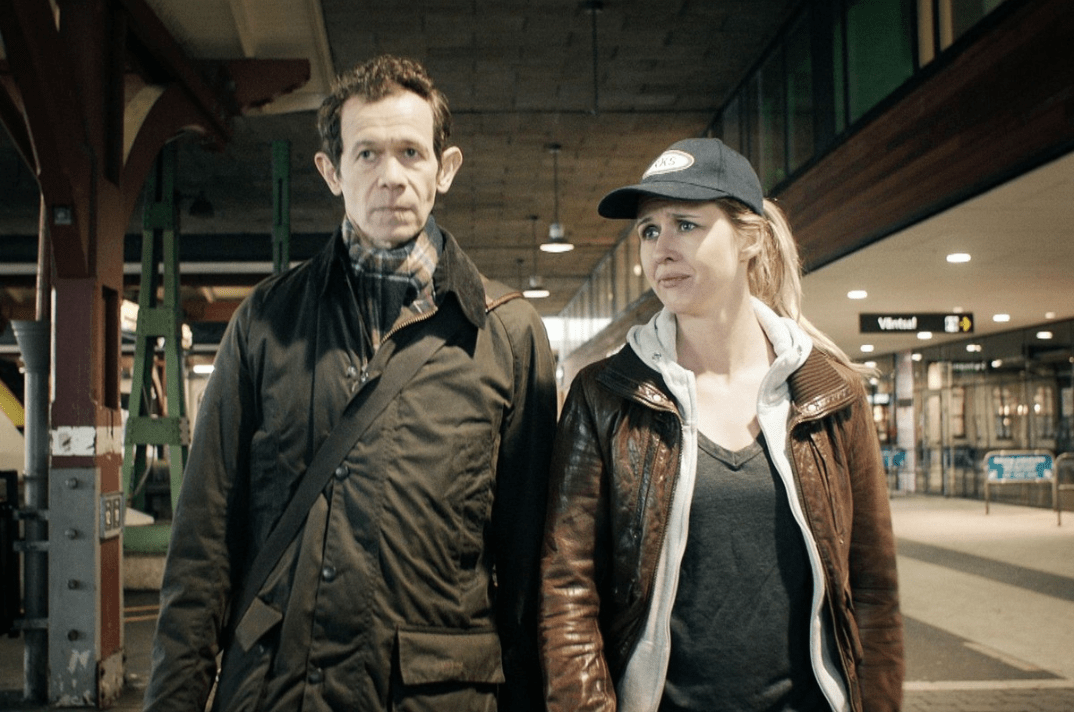 While working on this work, Bulgakov relied heavily on the memoirs of his wife, Lyubov Belozerova, who herself emigrated during the revolution. May 19For 28 years, Konstantin Stanislavsky wrote: «Running» was enthusiastically received by the theater, but the Glavrepertkom was not allowed to stage it. Running is prohibited. The resolution of the main committee for the control of the repertoire was supported by Joseph Stalin: he personally read the play.
While working on this work, Bulgakov relied heavily on the memoirs of his wife, Lyubov Belozerova, who herself emigrated during the revolution. May 19For 28 years, Konstantin Stanislavsky wrote: «Running» was enthusiastically received by the theater, but the Glavrepertkom was not allowed to stage it. Running is prohibited. The resolution of the main committee for the control of the repertoire was supported by Joseph Stalin: he personally read the play.
«Flight» is a manifestation of an attempt to arouse pity, if not sympathy, for certain sections of the anti-Soviet émigré community, and therefore an attempt to justify or semi-justify the White Guard cause. «Running», in the form in which it is, is an anti-Soviet phenomenon»
Joseph Stalin, «An Answer to Bill-Belotserkovsky»
In 1929, the Main Repertoire Committee withdrew all Bulgakov’s plays from the repertoire. The writer was left without income, the accounting department of the Moscow Art Theater demanded that the advance payment for the unstaged play «Running» be returned.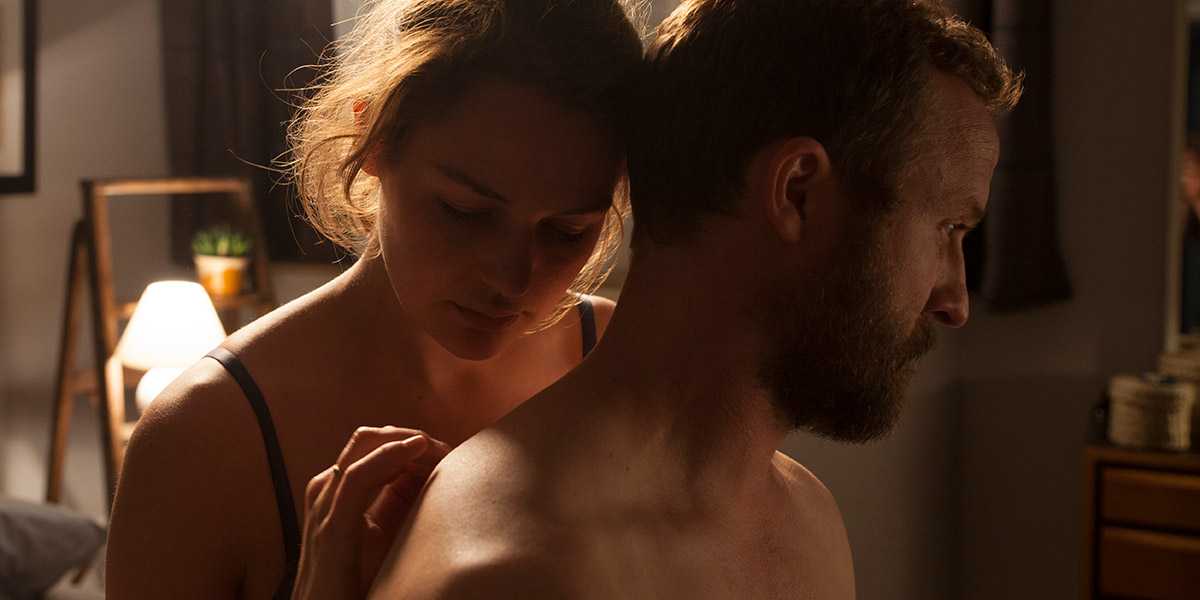 Bulgakov wrote to his brother Nikolai in Paris: “I am already in distress. On March 15, the first payment of the financial inspection will come <…> I believe that if some miracle does not happen, not a single item will remain in my pretty and damp apartment <…>. Junk touches me a little. Well, chairs, cups, to hell with them! I’m afraid for the books! June 1929 Bulgakov wrote a letter to Joseph Stalin and Mikhail Kalinin with a request to be allowed to leave the USSR. He was refused. Then the writer filed an application for withdrawal from the All-Russian Union of Writers.
Bulgakov wrote to his brother Nikolai in Paris: “I am already in distress. On March 15, the first payment of the financial inspection will come <…> I believe that if some miracle does not happen, not a single item will remain in my pretty and damp apartment <…>. Junk touches me a little. Well, chairs, cups, to hell with them! I’m afraid for the books! June 1929 Bulgakov wrote a letter to Joseph Stalin and Mikhail Kalinin with a request to be allowed to leave the USSR. He was refused. Then the writer filed an application for withdrawal from the All-Russian Union of Writers.
In the autumn of 1929, Mikhail Bulgakov wrote a new play, The Cabal of the Saints. The main character was Molière, an inconvenient writer for the king and the clergy, whom other heroes constantly tried to harm. The work was first allowed to be staged, but on March 18, 1930, the Glavrepertkom changed its decision: according to officials, Bulgakov in the play drew an analogy between the powerless position of the writer under the tyranny of the monarch and under the dictatorship of the proletariat.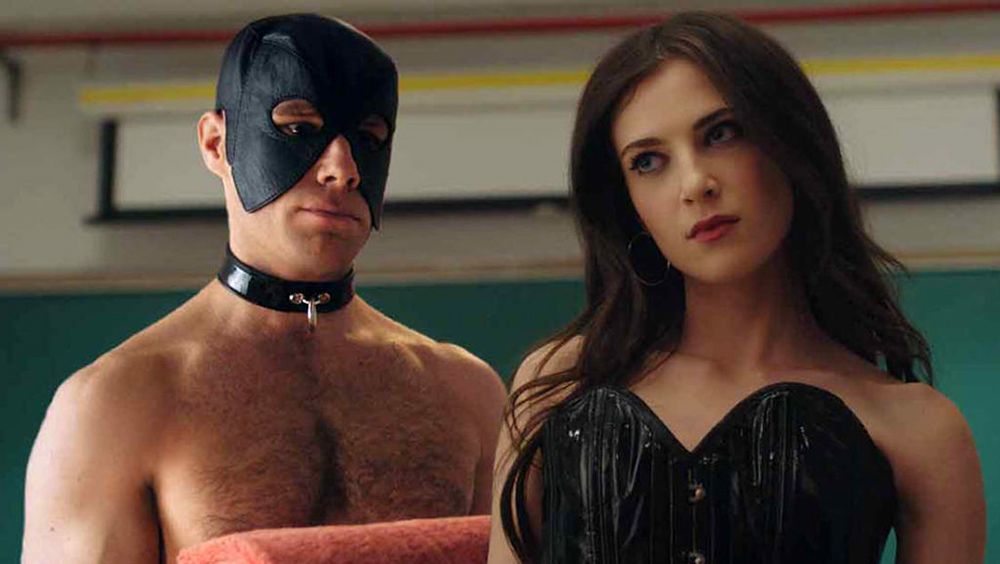 On the same day, returning home, the writer burned the drafts of the novel «Theatre» about the backstage and the outlines of the «Novel about the Devil». Soon Bulgakov wrote to the Government of the USSR: in it he repeated his request to emigrate. nine0003
On the same day, returning home, the writer burned the drafts of the novel «Theatre» about the backstage and the outlines of the «Novel about the Devil». Soon Bulgakov wrote to the Government of the USSR: in it he repeated his request to emigrate. nine0003
“Now I am destroyed. This destruction was greeted by the Soviet public with complete joy and was called an “achievement”. I will say briefly: buried under two lines of official paper — work in book depositories, my fantasy <...> I ask you to take into account that the impossibility of writing for me is tantamount to being buried alive ”
year in Bulgakov’s apartment the phone rang. Stalin said: “Where do you want to work? At the Art Theatre? — «Yes, I would like to. But I talked about it — they refused me. “And you apply there. I think they will agree.» May 19At the age of 30, Bulgakov was enrolled as an assistant director at the Moscow Art Theater.
In the theater, Bulgakov was engaged in staging — he was going to stage «Dead Souls» and «War and Peace». The writer told his friend Pavel Popov: “And by the end of my writing work, I was forced to compose dramatizations. What a brilliant ending, right? I look at the shelves and am horrified: who, who else will I have to stage tomorrow? Turgenev, Leskov, Ostrovsky? The latter, fortunately, staged himself, apparently foreseeing what would happen to me at 1929 and 1931″.
The writer told his friend Pavel Popov: “And by the end of my writing work, I was forced to compose dramatizations. What a brilliant ending, right? I look at the shelves and am horrified: who, who else will I have to stage tomorrow? Turgenev, Leskov, Ostrovsky? The latter, fortunately, staged himself, apparently foreseeing what would happen to me at 1929 and 1931″.
In 1932, Mikhail Bulgakov divorced Lyubov Belozerskaya and married Elena Shilovskaya. The writer met her at a party with friends. Shilovskaya was married to a high-ranking official. When her relationship with Bulgakov opened, Shilovskaya’s husband refused to give a divorce and forbade him to see the writer. However, a year later he gave in and allowed his wife to leave. Shilovskaya helped Bulgakov in everything: she typed works from dictation, and managed all his affairs.
B 19In 1933, Bulgakov returned to The Romance of the Devil. The writer wrote to Veresaev: “Suffocating in my little rooms, I began to dirty page after page of my novel that had been destroyed three years ago. What for? Don’t know. I indulge myself! Let it fall into oblivion!”. Bulgakov chose a title for a long time: the novel was called either «Consultant with a Hoof», then «Engineer’s Hoof», then «Tour (Woland)». In the first, burnt version, the Master and Margarita did not exist at all: the heroes appeared already in the second version. The prototype of Margarita was Bulgakov’s third wife Elena Shilovskaya. At the same time, the story of Yeshua and Pontius Pilate turned from the main line of the novel into the work of the Master. nine0003
What for? Don’t know. I indulge myself! Let it fall into oblivion!”. Bulgakov chose a title for a long time: the novel was called either «Consultant with a Hoof», then «Engineer’s Hoof», then «Tour (Woland)». In the first, burnt version, the Master and Margarita did not exist at all: the heroes appeared already in the second version. The prototype of Margarita was Bulgakov’s third wife Elena Shilovskaya. At the same time, the story of Yeshua and Pontius Pilate turned from the main line of the novel into the work of the Master. nine0003
While working on The Master and Margarita, the writer made extracts from theological works, encyclopedic dictionaries and philosophical teachings. The notebooks were divided into themes: «About the Devil», «Jesus Christ», «About God». The poet Konstantin Simonov said: «This novel, in my opinion, is Bulgakov’s best work, and if we talk about the history of Christ and Pilate, then this is generally one of the best pages of Russian literature of the 20th century.
